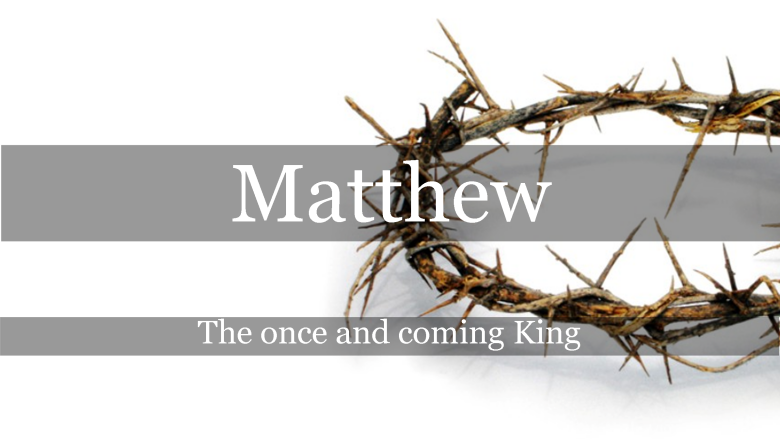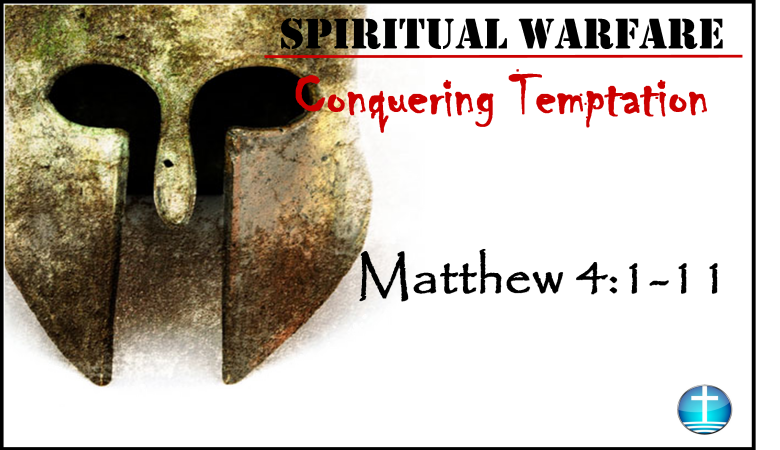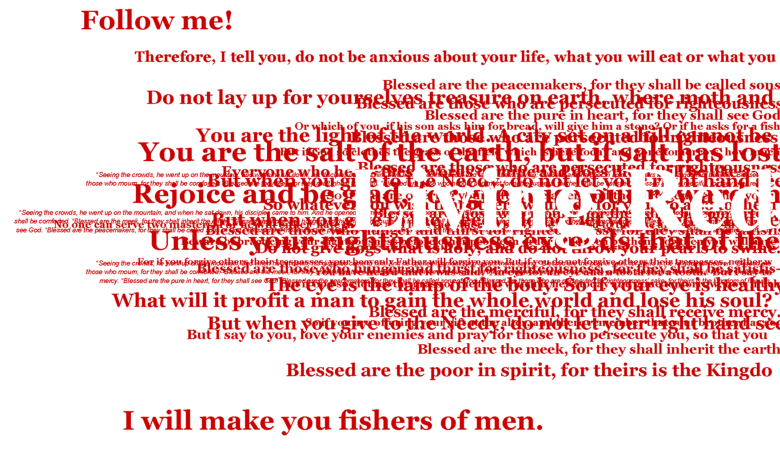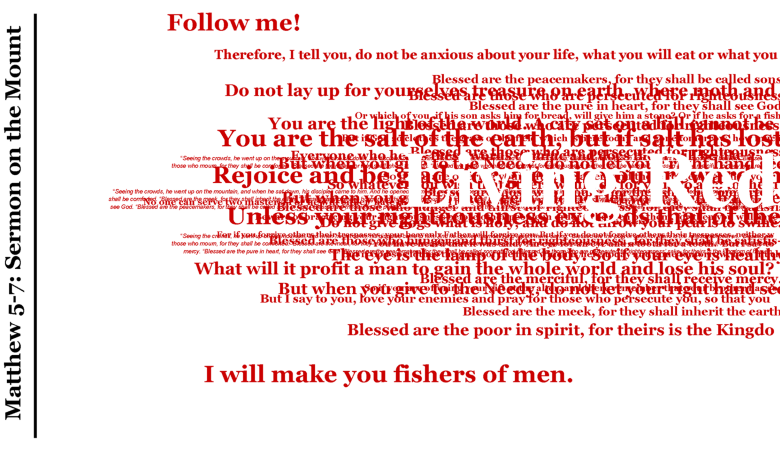Matthew 5:9 Peacemakers: Declaring War on all Truces
“Blessed are the peacemakers, for they shall be called sons of God.” (Matthew 5:9, ESV)
Introduction: A World Built on Violence and Tyranny
The Babylonian Mythology of Marduk and the Domination State’s use of Violence. They thrust the world into war in order to avert war.
Jesus teaches that we should love our enemies, but Babylonian religion teaches to exterminate them. Violence was for the religion of ancient Mesopotamia what love was for Jesus: a central dynamic of existence. Recurrent warfare between the various city-states in the region exhausted resources. Chaos threatened every achievement of humanity. The myth that enshrined the culture’s sense of life was the Enuma Elish, dated to around 1250 BC, in the versions that have survived, but based on traditions that are considerably older.
In the beginning, according to this myth, Apsu and Tiamat (the sweet and salt-water oceans) bear Mummu (the mist). From them also issue the younger gods, whose frolicking makes so much noise that the elder gods cannot sleep and so resolve to kill them. This plot of the elder gods is discovered, and Ea kills Apsu (one of the elder gods). Apsu’s wife, Tiamat pledges revenge. Ea and the younger gods in terror turn for salvation to their youngest, Marduk. He exacts a steep price: if he succeeds, he must be given chief and undisputed power in the assembly of the gods. Having extorted this promise, he catches Tiamet in a net, drives an evil wind down her throat, shoots an arrow that bursts her distended belly and pierces her heart; he then splits her skull with a club, and scatters her blood in out-of-the-way places. He stretches out her corpse full length, and from it creates the cosmos.
Babylonian Mythology of Violence
- Creation is an act of violence not calm order
- Order is established by means of disorder
- Creation itself is a violent victory over an enemy older than creation
- The origin of evil precedes the origin of things, precedes creation and is thus inherent in it.
- Chaos is prior to disorder
- Evil is prior to good.
- Violence inheres in the gods and thus inheres in what is created out of the gods. Violence is not a problem at all, but an expected component of the world in which we live.
Biblical Record
- God is good who calmly and in an orderly fashion creates the universe
- Chaos does not resist order but gladly submits to it.
- Good is prior to evil.
- Neither evil nor violence is ever intended to be a constituent part of creation, but both enter as a result of the first couple’s sin and Satan’s machinations.
- A Basically good reality is thus corrupted by free decisions reached by creatures.
- In this far more complex and subtle origin of things, evil emerges as a problem that requires a solution.
The myth goes on: the gods that are imprisoned by Marduk complain of poor meal service in the jail. So Marduk and Ea kill one of the imprisoned gods and from his blood create people to serve the gods. These are the implications of that:
- Humanity is created from violence
- Killing is in our blood.
- We are incapable of peaceful coexistence; order must be continually imposed upon us from on high.
- We are not intended to subdue the earth and have dominion over it as God’s regents; we exist to serve as slaves to the gods by serving their earthly rulers – the kings and monarchs.
As Marduk’s representative on earth, the king’s task is to subdue all those enemies who threaten the tranquility that he has established on behalf of the god. The whole cosmos is a state, and the gods rule through the king. Politics arises within the divine sphere itself. Salvation is politics in this case: identifying with the god of order against the god of chaos, and offering one’s self up for holy war required to impose order and the rule of law on the peoples of the earth.
And because chaos threatens repeatedly, in the form of barbarian attacks, an ever expanding imperial policy is the automatic correlate of Marduk’s ascendency over all the gods.
- Violence is not a problem in Babylonian Mythology
- Violence has a saving capacity
I am not saying that there is never a place and a time for war. The Scriptures suggest that there is a time for conflict and a time for peace but the Scriptures teach that both seasons of war and peace should be conducted on principles of righteousness. What I am saying is that violence has its origins in evil, and this evil continues to express itself outwardly to this very day through this same false religion.
T.V. - The average child is reported to log roughly 36,000 hours of television by the age of 18, including witnessing some 15,000 murders. In prime time television, our children are served up about 16 entertaining acts of violence every night and observe at least two graphic fatalities for entertainment, with at least four additional “non-graphic” fatalities.
Modern Day Application: The Myth of the Domination State is alive and well today
There are countless peace monuments in capitols and countries all over the world. Every nation likes to build a peace monument right after every war.
Peace is that glorious moment in time in which both sides are required simultaneously to pause for a few seconds in order to reload.
I’m not making fun of nations that must go to war in order to end war. I believe in just war. Just war is the only means available to nation-states to secure enduring truces and protect the lives of their citizens. War is the practical outworking of the nation-state itself. War is the fruit of a system of domination. It inevitably descends into violence against violence, and those who violently resist violence become violent oppressors themselves. There is no way to oppose a domination state without contributing to the domination state.
EXEGESIS
Jesus teaching is “Blessed are the Peace Makers.”
- Peacemakers:
- What it is not:
- Not appeasing, not flabby.
- Not peace at all costs; does not ignore justice or righteousness.
- Peace is not a truce.
- What it is not:
- To make peace is to establish friendly relations between two hostile parties.
- Is proactive
- Embraces justice and righteousness
- Requires reconciliation between two opposing parties
THE SOURCE OF ALL PEACE
Ephesians 2:11-17. Jesus himself is our peace:
- Embraces the cost of reconciliation in his own body
- Ephesians 2: Broke down the dividing wall of hostility
- Makes one in the place of two: to bring peace is to bring unity. “Unite us!” In order to bring peace to people, one must first be pure in heart before God. Logical progression here. Must be united with God before one can unite others to God and yourself.
John 10:16 - We must be peace-makers like Christ.
“And I have other sheep that are not of this fold. I must bring them also, and they will listen to my voice. So there will be one flock, one shepherd.” (John 10:16, ESV)
- There are others out there who belong to the church, this church.
- Jesus must bring them. He is under divine obligation to do so.
- We are called to preach the Words of Christ to them in order to bring them into this church.
THE SONS OF GOD
They shall be called “Sons of God.”
- They have the same nature as God. In some sense, they have become one with God or united with God, or have –in other words- become pure in heart through the process of striving to bring peace to others.
- This builds on the previous beatitude.
- “All this is from God, who through Christ reconciled us to himself and gave us the ministry of reconciliation; that is, in Christ God was reconciling the world to himself, not counting their trespasses against them, and entrusting to us the message of reconciliation. Therefore, we are ambassadors for Christ, God making his appeal through us. We implore you on behalf of Christ, be reconciled to God.” (2 Corinthians 5:18–20, ESV)
THEY ARE HAPPY
- “I do it all for the sake of the gospel, that I may share with them in its blessings.” (1 Corinthians 9:23, ESV)
- “that which we have seen and heard we proclaim also to you, so that you too may have fellowship with us; and indeed our fellowship is with the Father and with his Son Jesus Christ. And we are writing these things so that our joy may be complete.” (1 John 1:3–4, ESV)
Happiness comes to people who strive to bring peace between God and other people; it is these people who pressing into the depths of God’s heart and will find their joy there.
UNITING THE HEART OF GOD WITH OUR HEART’S JOY
We must unite our joy with God’s glory so that they become one interest. It must be that when we pursue God’s glory we increase our joy and the corollary must also be true that when we pursue our joy we are exalting God’s glory and honor.
On January 24, 1744 David Brainerd, missionary to the Native Americans of New England, wrote,
“In the evening, I was unexpectedly visited by a considerable number of the people, with whom I was enabled to converse profitably of divine things. Took pains to describe the difference between a regular and irregular self love; the one consisting with a supreme love to God, but the other not; the former uniting God’s glory and the soul’s happiness that they became one common interest, but the latter disjoining and separating God’s glory and man’s happiness, seeking the latter with a neglect of the former. Illustrated this by that genuine love that is founded between the sexes, which is diverse from that which is wrought up towards a person only by rational argument, or the hope of self-interest.”
This means that we will delight in things like telling the truth. Trading jokes around the office water-cooler about how we got away with something or successfully managed to tell a lie will false out of favor and taste among us. We will no longer find such things amusing. We will loath them, and we will find truth telling to be the most pleasant and enriching thing, ect.
This means that we don’t delight in violence. Even worse... we hate truces. We will make war on all temporary, fleeting and false cease-fires. We will seek true righteous peace with all mankind and the heavenly Father!
Conclusion: why doesn’t Jesus deal with the big things like Rome’s imperialism, the horror of Pontius Pilate, the violence that is going on all around the world? Why is Christ speaking to individual peacemaking when there are nations bludgeoning each other to death?
"It was only when I lay there on rotting prison straw that I sensed within myself the first stirrings of good. Gradually it was disclosed to me that the line separating good and evil passes not through states, nor between classes, nor between political parties either, but right through every human heart, and through all human hearts. This line shifts. Inside us, it oscillates with the years. Even within hearts overwhelmed by evil, one small bridgehead of good is retained; and even in the best of all hearts, there remains a small corner of evil.
…. If only there were evil people somewhere insidiously committing evil deeds, and it were necessary only to separate them from the rest of us and destroy them. But the line dividing good and evil cuts through the heart of every human being. And who is willing to destroy a piece of his own heart?”
~Alexander Solzhenitsyn
The line between good and evil does not run between political parties or nation states. No, the line between good and evil, right and wrong runs right through the heart of every man. The sins of society and the wickedness of our culture can be traced to the sin and evil of the individual. It does not matter whether nations survive, whether culture is corrected or further corrupted. Nations can be destroyed. Countries can be cast away. But the solution to all of this is rooted in the single heart of every single man. ~Gulag Archipelago.
Series Information

The Gospel of Matthew is a story about a once and coming King. Jesus of Nazareth is the Son of David, the long awaited for Messiah. He has come once, and Matthew tells the story of His arrival, ministry, sacrificial atoning work on the cross, and His promise to return soon.






